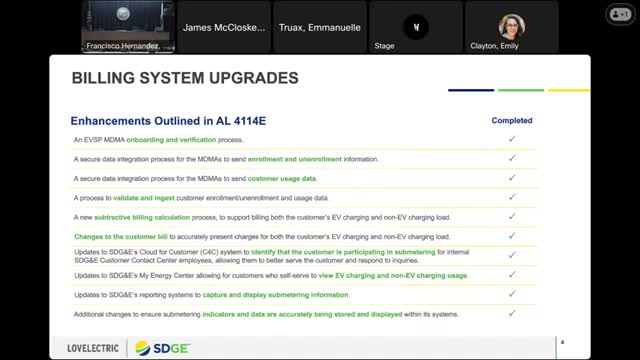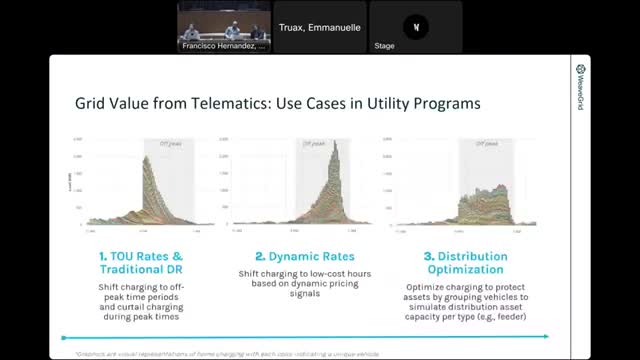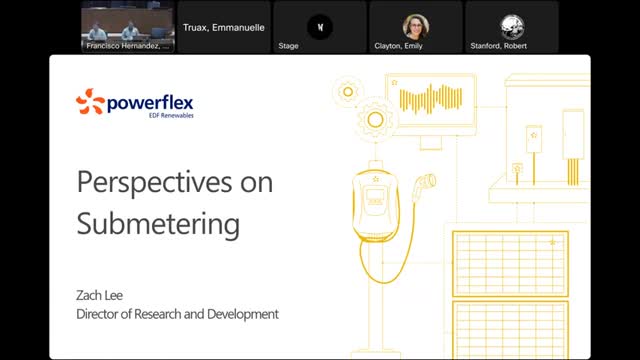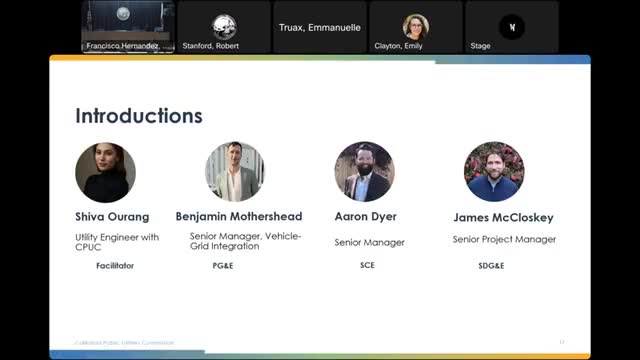Article not found
This article is no longer available. But don't worry—we've gathered other articles that discuss the same topic.

Stakeholders urge CPUC harmonization of data formats, sampling rules and re‑examination of NEM exclusion

Telematics vendors press for telematics pathway in non‑rate programs; EPRI testing and NIST standards proposed as next steps

MDMA vendors say commercial submetering can save fleets; NEM exclusion and certification costs hinder wider adoption

